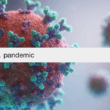
Hypertension, commonly known as high blood pressure, is a silent yet significant factor affecting millions of adults worldwide. It’s a leading cause of heart disease, stroke, and other health-related complications. This blog post aims to delve into the importance of health promotion and disease prevention strategies for hypertension, highlighting the role of controlling blood pressure and adopting healthy lifestyle choices.
Understanding Hypertension: The Silent Threat
Hypertension occurs when the blood pressure in your arteries is consistently too high. This increased pressure puts extra strain on your heart and blood vessels, leading to heart disease and stroke. Hypertension often goes unnoticed as it rarely has noticeable symptoms, making regular measure blood pressure checks crucial.
The Role of Health Promotion in Hypertension
Health promotion for hypertension revolves around raising awareness and providing education on managing and preventing high blood pressure. Public health campaigns and the promotion series by health care organizations play a pivotal role in educating people about the importance of regular blood pressure checks and adopting a healthy lifestyle.
Strategies for Hypertension Health Promotion
- Education and Awareness: Organizations like the CDC (Centers for Disease Control and Prevention) in the United States emphasize the need for public knowledge about hypertension. They provide resources and information to help people understand the risk factors and the importance of early detection.
- Healthy Lifestyle Choices: Adopting a heart-healthy diet, engaging in regular physical activity, and maintaining a healthy weight are key strategies for controlling hypertension. This includes reducing sodium intake, avoiding harmful levels of alcohol consumption, and quitting smoking.
- Stress Management: Chronic stress is a contributor to high blood pressure. Techniques like meditation, deep breathing exercises, and yoga can help manage stress levels.
- Regular Health Check-ups: Regular visits to health care professionals for blood pressure monitoring are essential. Early detection and control of hypertension can prevent complications like heart disease and stroke.
Disease Prevention: Controlling the Uncontrolled
Prevention is always better than cure, especially when it comes to hypertension. Disease prevention strategies focus on preventing the onset of hypertension and mitigating its effects if already present.
Key Prevention Strategies
- Diet and Nutrition: A diet rich in fruits, vegetables, whole grains, and low-fat dairy products can help lower blood pressure. The DASH (Dietary Approaches to Stop Hypertension) diet is a proven approach.
- Physical Activity: Regular physical activity can help lower blood pressure and keep your heart healthy. Aim for at least 150 minutes of moderate-intensity exercise per week.
- Medication Adherence: For those already diagnosed with hypertension, adhering to prescribed medications is vital for controlling blood pressure. Regular consultations with healthcare providers are necessary for medication management.
- Avoiding Risk Factors: Limiting alcohol intake, avoiding tobacco, and reducing sodium consumption are critical in preventing hypertension.
Public Health Initiatives and Community Involvement
Public health initiatives play a crucial role in hypertension control and prevention. National centers and organizations like the CDC gov in the United States are at the forefront of these efforts, providing guidelines, funding research, and supporting community-based programs.
Community involvement is equally important. Community health programs
and local initiatives can offer personalized support and resources to individuals, especially in areas with limited access to healthcare services.
Public Health Approaches:
- Screening Programs: Regular community health screenings help in early detection of hypertension, especially among high-risk groups.
- Health Promotion Campaigns: Campaigns aimed at promoting heart health and educating the public about the risks of hypertension and the importance of regular monitoring.
- Policy Advocacy: Advocating for policies that promote healthy environments, such as reducing sodium in processed foods and supporting physical education in schools.
The Impact of Hypertension in the United States
In the United States, hypertension is a leading cause of heart disease and stroke, two of the leading causes of death. With millions of Americans affected by this condition, it is a significant public health challenge. Strategies for prevention and control are not only crucial for individual health but also for reducing the overall healthcare burden.
The Role of National Center for Chronic Disease Prevention and Health Promotion (NCCDPHP):
The NCCDPHP, a part of the CDC gov, plays a vital role in the national response to hypertension. They work towards reducing the disease burden by funding state and local programs, conducting research, and promoting effective health policies.
The Future of Hypertension Health Promotion and Disease Prevention
Looking ahead, the focus on hypertension health promotion and disease prevention is more critical than ever. With the advent of new technologies and digital health tools, there are more opportunities for innovative approaches to monitoring and managing blood pressure.
Innovations and Technologies:
- Wearable Devices: Smartwatches and fitness trackers that can monitor blood pressure and heart rate, providing real-time data to users and healthcare providers.
- Telehealth Services: Telemedicine offers a convenient way for patients to consult with their doctors, especially for regular follow-ups and blood pressure monitoring.
- Mobile Health Apps: Apps designed to track blood pressure readings, remind patients to take their medications, and provide lifestyle tips.
Conclusion
The battle against hypertension requires a combined effort from healthcare providers, public health organizations, communities, and individuals. Through effective health promotion and disease prevention strategies, we can control this silent killer and reduce the risk of heart disease and stroke. Remember, managing hypertension is not just about medication; it’s about a holistic approach to health, encompassing diet, exercise, mental well-being, and regular medical care.
In conclusion, the fight against hypertension is ongoing and requires a collective effort. By incorporating these strategies into our lives and supporting public health initiatives, we can make significant strides in promoting heart health and preventing hypertension-related complications.



